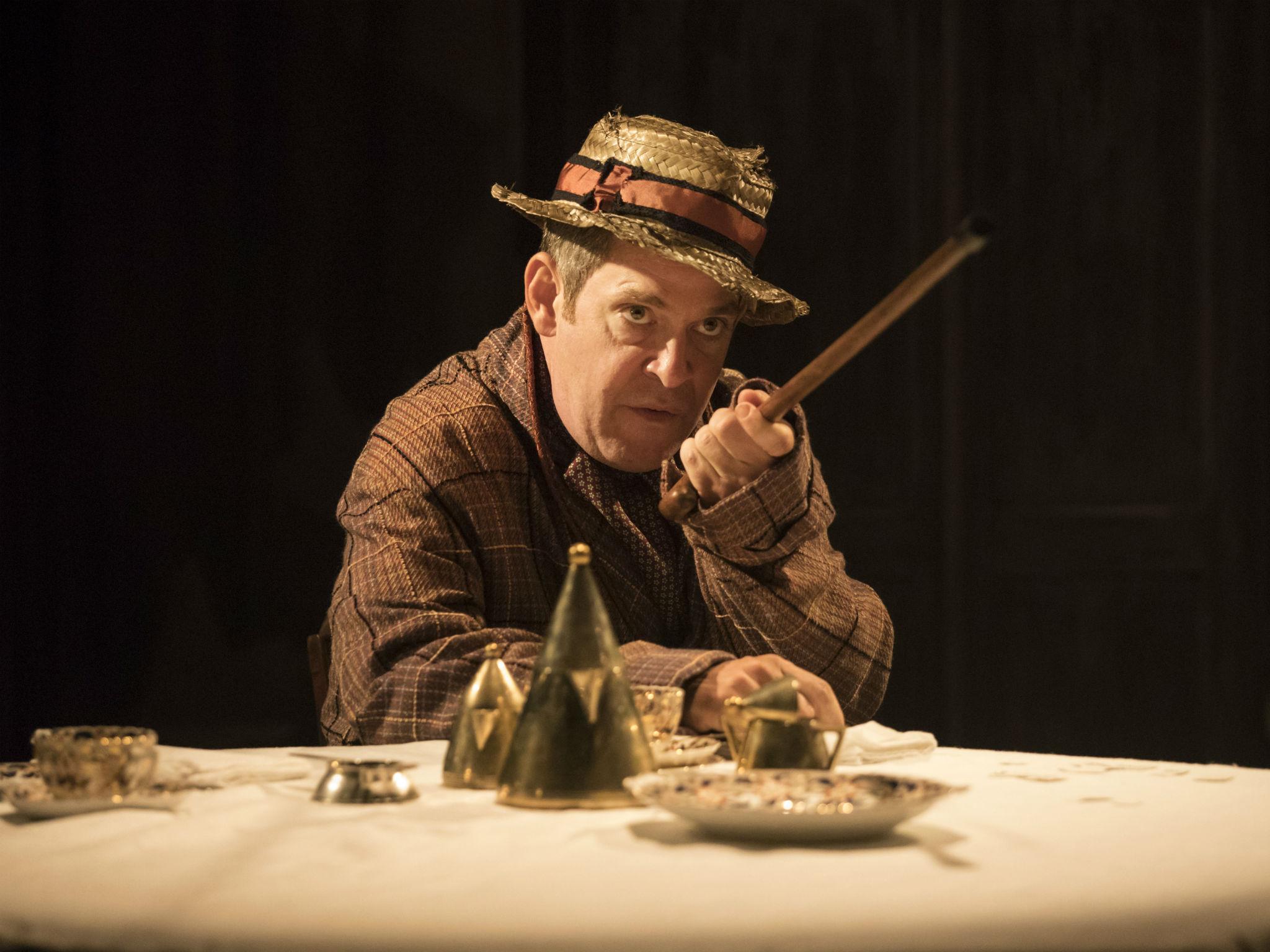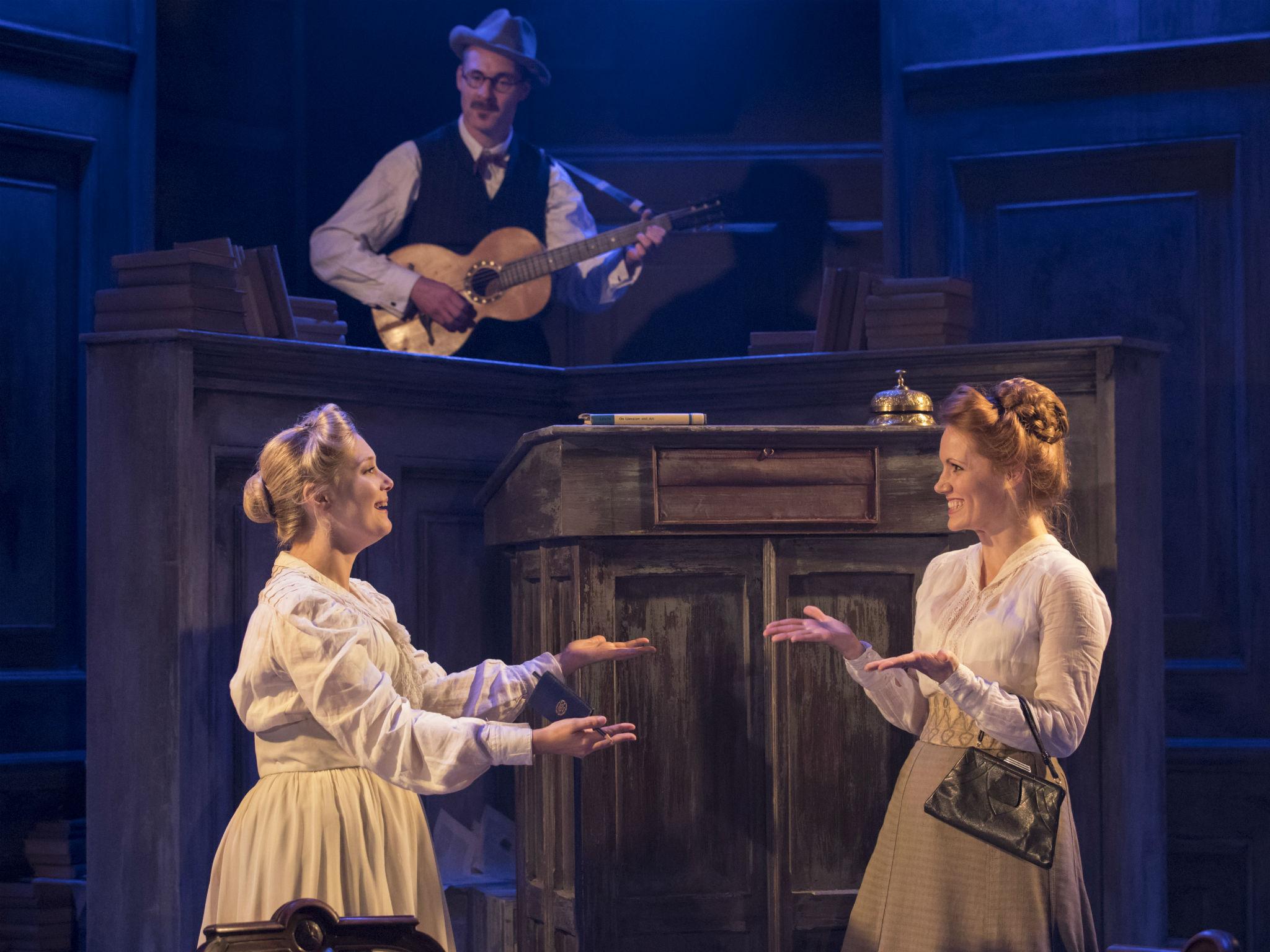Travesties, Menier Chocolate Factory, London review: A first-rate cast perform with terrific pace, zest and dexterity
Patrick Marber’s ace production revels in the play’s riotous plenty

Your support helps us to tell the story
From reproductive rights to climate change to Big Tech, The Independent is on the ground when the story is developing. Whether it's investigating the financials of Elon Musk's pro-Trump PAC or producing our latest documentary, 'The A Word', which shines a light on the American women fighting for reproductive rights, we know how important it is to parse out the facts from the messaging.
At such a critical moment in US history, we need reporters on the ground. Your donation allows us to keep sending journalists to speak to both sides of the story.
The Independent is trusted by Americans across the entire political spectrum. And unlike many other quality news outlets, we choose not to lock Americans out of our reporting and analysis with paywalls. We believe quality journalism should be available to everyone, paid for by those who can afford it.
Your support makes all the difference.There’s a famous Monty Python sketch that parodies the show-off competitive effort of coining negligent Wildean epigrams: “There is only one thing worse than playing squash together, and that is playing it by yourself,” quips Graham Chapman’s Oscar somewhat desperately, causing a lull in the sycophantic, mechanical laughter of the entourage. I'm ashamed to admit that this sketch has briefly popped into my mind on the two previous occasions that I have seen Tom Stoppard's 1974 play Travesties which, among other marvels, offers a running pastiche of The Importance of Being Earnest. Not here, though, as I watched Patrick Marber’s utterly scintillating revival at the Menier. The play has been pruned, though there are a couple of new bits, and the first-rate cast perform the intellectual vaudeville with terrific pace, zest and dexterity. The display of cleverness and erudition is unremitting, to be sure, but it comes across as winningly rampant rather than cumulatively wearisome.
Travesties seizes on the coincidence that, in 1917, neutral Zurich was haven to James Joyce, Tristan Tzara, founder of the anti-art Dadaist movement and Lenin biding his time. Stoppard hypothesises that these figures knew one another and his master-stroke is to present their supposed Earnest-mirroring encounters – and the resulting debates about the nature of art and its relationship with revolution –- through the distinctly dodgy reminiscences, in old age, of Henry Carr, then a minor official at the British consulate. We know that Carr played Algernon in Joyce’s amateur production of Wilde’s play and that he sued the author of Ulysses for the cost of a pair of trousers. Around this nugget of undignified fact, the play weaves its web of mischievous speculation.
Tom Hollander is superbly funny and, at times, fleetingly sad as Carr in both doddery anecdotage and dapper youth. He has the slightly mad twinkle of the incorrigible fantasist who needs to believe that he’s at the centre of things. On the one hand, he’s a philistine joke-figure with his hilarious weakness for wardrobe (perking up perceptibly at the assurance that the role of Algernon involves two complete changes of costume) and with his unerring way of backing the wrong horse in any bets about the political future. But his view that art and artists are absurdly overrated is voiced with the scathing wit – “to be an artist at all is like living in Switzerland during a world war. To be an artist in Zurich in 1917, implies a degree of self-absorption that would have glazed over the eyes of Narcissus” – of a man who has known trench warfare, however briefly and to the detriment of his natty uniform.

Freddie Fox excels as the radical flamboyantly flouncing Tzara while Peter McDonald’s dour, deliciously comic Joyce is very moving when he put the apolitical case for the artist as a magician put amongst men to gratify capriciously “their urge for immortality”. The great advantage of putting the entire proceedings in Carr’s wayward mind is that it gives the play massive freedom of manoeuvre. There are sequences delivered entirely in limericks; the tiff between Gwendolen and Clare Foster’s consummately funny Cecily reimagines the tetchy tea-party scene in Earnest as an absurd “Mr Gallagher and Mr Shean” sung duet.
Played on Tim Hatley’s paper-strewn set and with the bright ping of a receptionist’s bell announcing each alternatively remembered sequence, Marber’s ace production revels in the play’s riotous plenty – though with rigorous discipline and no hint of a cast enjoying themselves more than the public. A travesty of justice if it does not transfer to the West End.
To 19 November ; 020 7378 1713
Join our commenting forum
Join thought-provoking conversations, follow other Independent readers and see their replies
Comments